Music
Music - Statement of Curriculum Intent
‘Music gives a soul to the universe, wings to the mind, flight to the imagination, and life to everything’ - Plato
At All Cannings School, our ambition is that all pupils are musicians. They are equipped with the necessary skills that enable them to achieve their aspirations and have the confidence to use and apply them. Our music curriculum promotes curiosity and both a love and a thirst for learning. It is ambitious and empowers our children to become independent and resilient – like all curriculum areas.
We want to equip pupils with not only the minimum statutory requirements of the music National Curriculum but to prepare them for the opportunities, responsibilities and experiences of later life. We are committed to putting music on the map here at All Cannings Primary School.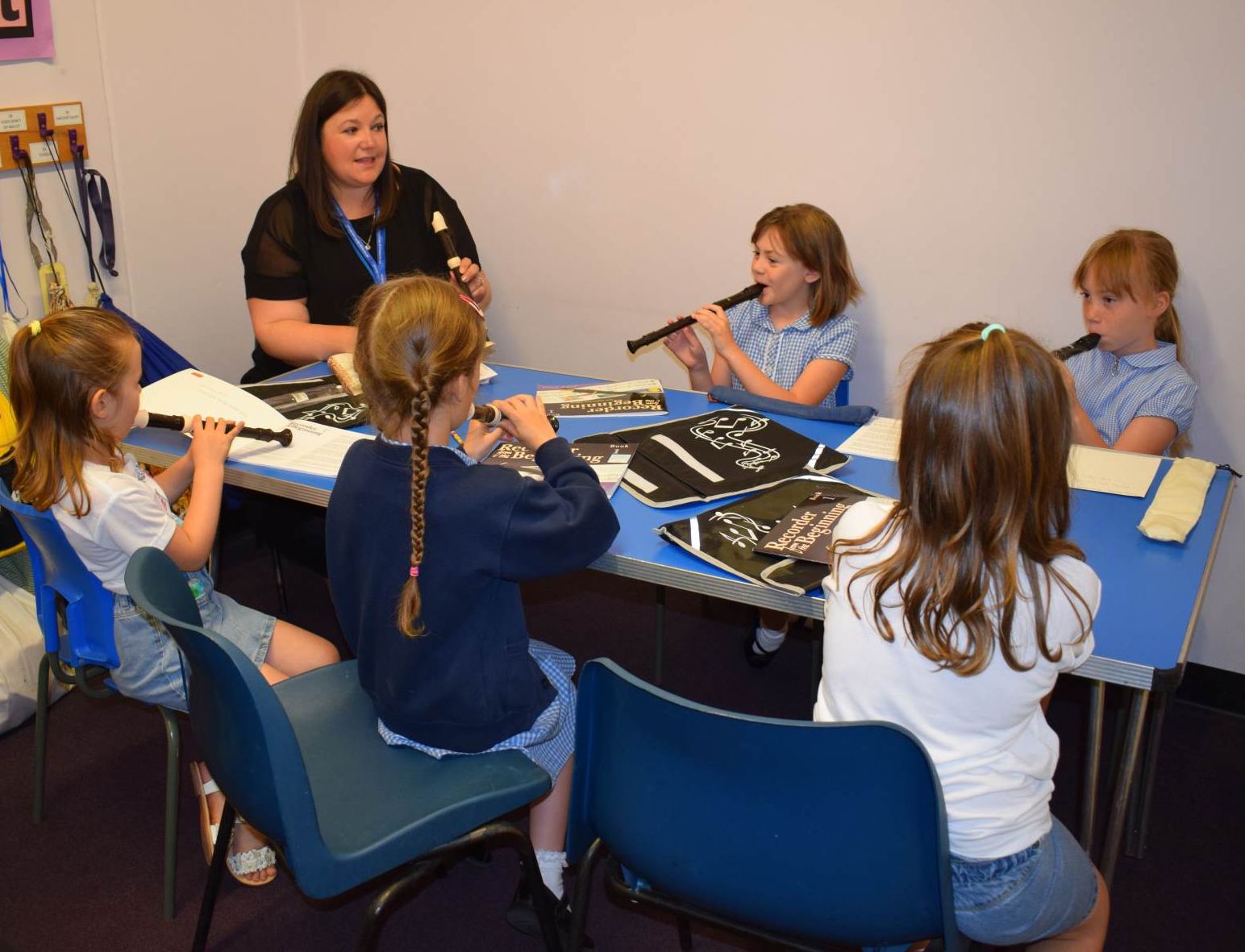
Our music curriculum aims to provide our children with many opportunities to explore and experiment with music. We strive to provide them with a broad knowledge of the history and principles of music, whilst supporting and encouraging them to develop their own unique relationship with it. We recognise Wiltshire’s rich historical and present day musical community and aim to immerse our children into that culture, whilst celebrating the diversity of the wider and wonderful world of music!
We achieve this by providing a rich and diverse curriculum, underpinned by our school’s Christian values of Wisdom, Generosity, Koinonia, Compassion, Peace and Joy and linked by our ‘golden threads’. This enables every member of the school community to recognise and show that learning makes a difference.

Implementation
The music curriculum has been carefully built and the learning opportunities and assessment milestones for each year group have been crafted to ensure progression in terms of embedding key knowledge and skills. At All Cannings Primary School, we use the Charanga Musical School original scheme, which provides our teachers with week-by-week lessons for each year group. This scheme provides lesson plans, clear progression, and engaging and exciting whiteboard resources for every lesson. In line with curriculum expectations, our music scheme is based on the following areas: Listening and Appraising; Musical Activities – creating and exploring; and Singing and Performing.
Due to our mixed-year composition of each class, our music curriculum is organised on Year A/B rolling programme. During Year A, Classes 2 – 6 cover the units of their respective younger year groups, as set out by Charanga. Therefore, during Year B, these classes cover units for their respective older year groups. For example, Class 6 (Year 5/6) will cover Year 5 units in Year A followed by Year 6 units in Year B. Class 1 is composed of mainly reception pupils usually alongside a small number of the Year 1 cohort. To ensure a secure and confident start to learning music at All Cannings, Class 1 (Year R/1) will cover just the Reception units for both Years A and B.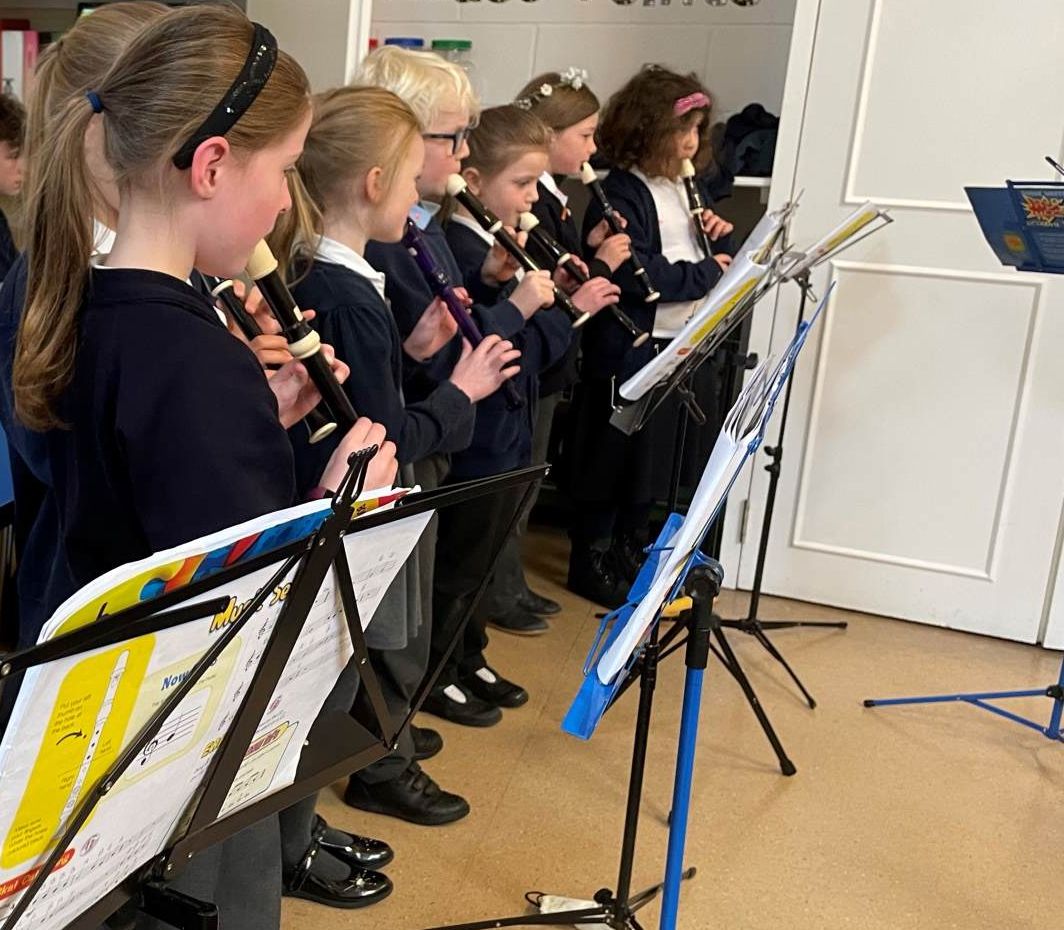
Within our Year A/B rolling programme, we empower our staff to organise and select units under the guidance of our subject leaders. Staff develop year group specific long-term curriculum maps which identify when and which units of music will be taught across the academic year. The majority of music units are taught discretely whilst staff make meaningful links across subjects where appropriate. They link prior knowledge to new learning to deepen children’s learning.
We encourage staff to teach a weekly music lesson but recognise that teachers are best placed to judge what will work best for their class during a given term. We believe that by crafting our curriculum this way, we improve the potential for our children to retain what they have been taught, to alter their long-term memory and thus improve the rates of progress they make.
Impact
Careful mapping out of the assessment milestones for each key stage (KS1, LKS2 and UKS2) ensure that skills in music are progressive. Staff use formative assessment to inform their short-term planning and to monitor pupils’ progress and attainment. This helps us to provide the best possible support for all of our pupils, including the more able. The teacher assessment documents provided by Charanga support teachers with the formative assessment process. In turn, these formative assessment grids.
A comprehensive monitoring cycle is developed at the beginning of each academic year, which identifies when monitoring is undertaken. Monitoring in music includes book scrutinies, lesson learning walks and pupil/staff voice. All of this information is gathered and reviewed. It is used to inform further curriculum developments and provision is adapted accordingly.
When leaving us in Year Six, our pupils are equipped with not only the minimum statutory requirements of the Music National Curriculum, but are well prepared for the musical opportunities and challenges they will encounter throughout their school career, and in later life.



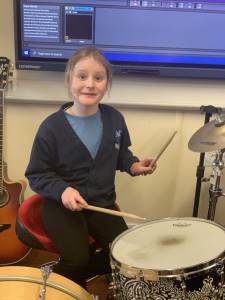
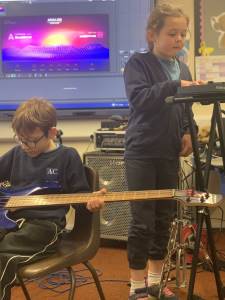
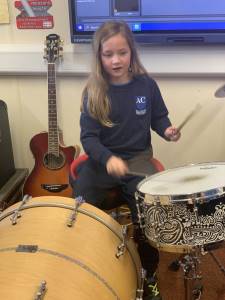
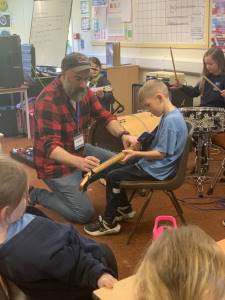
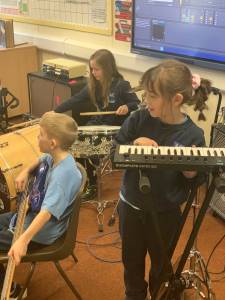
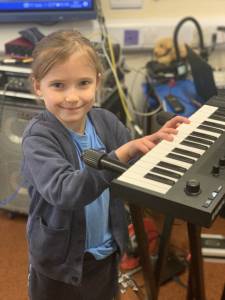
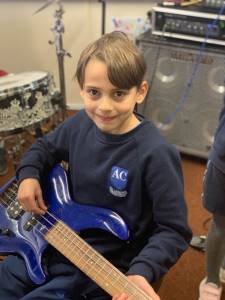
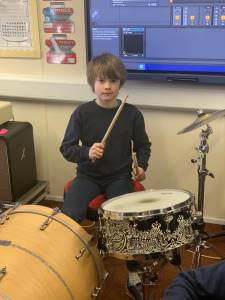
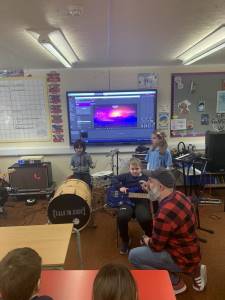
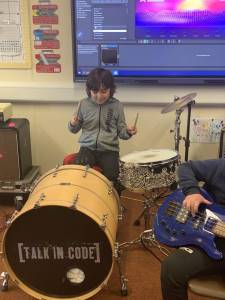
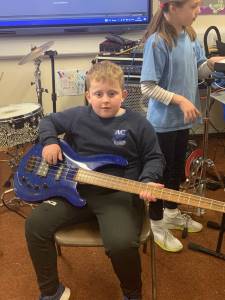
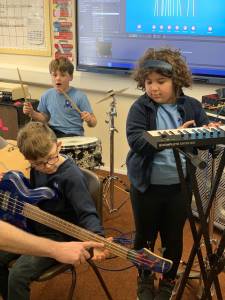
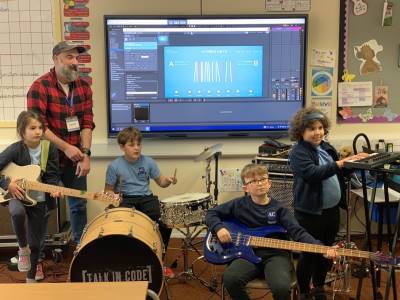
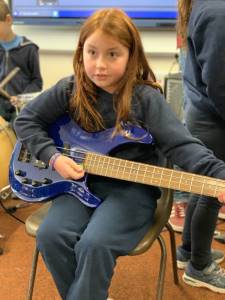
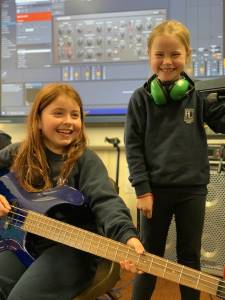
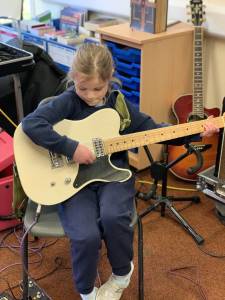
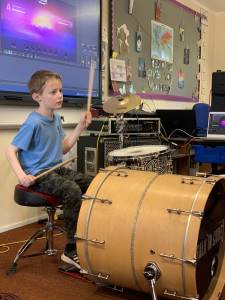
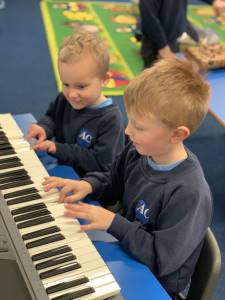
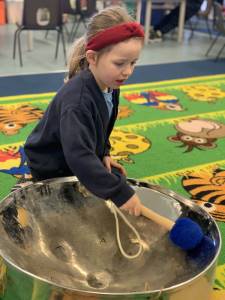
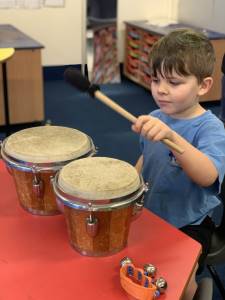
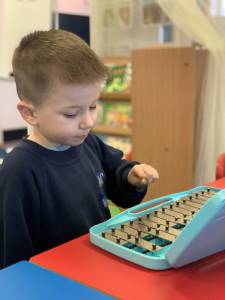
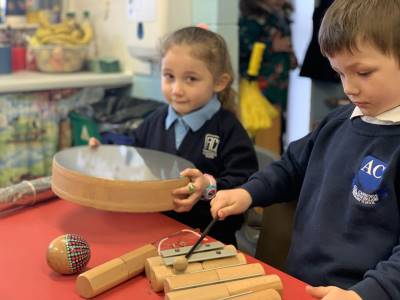
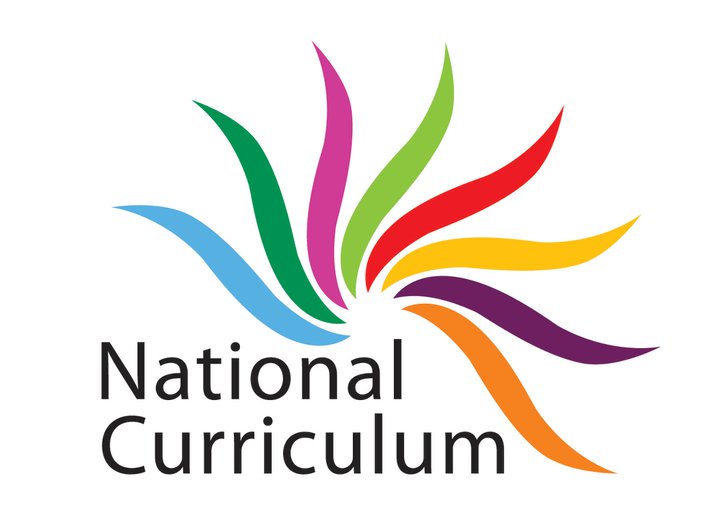
Close